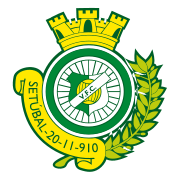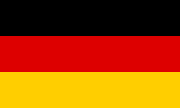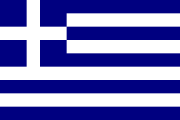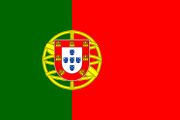Vitória F.C.
 |
||||
| Full name | Vitória Futebol Clube | |||
|---|---|---|---|---|
| Nickname(s) | Os Sadinos (Those from the Sado River) O Velho Senhor (The Old Sir) |
|||
| Founded | November 20, 1910 | |||
| Ground | Estádio do Bonfim, Setúbal (Capacity: 21,530 / 18,728 (UEFA)) |
|||
| Chairman | ||||
| Manager | ||||
| League | Portuguese Liga | |||
| 2009–10 | Portuguese Liga, 14th | |||
|
||||
Vitória Futebol Clube is a Portuguese sports club from the city of Setúbal. Popularly known as Vitória de Setúbal (pronounced [viˈtɔɾiɐ dɨ sɨˈtubaɫ], the club was born under the project name Sport Victoria from the ashes of the small Bonfim Foot-Ball Club. Today's club was established on 20 November 1910 under the name Victoria Foot-Ball Club (later changed to the present Portuguese spelling) with the motto "A Vitória será nossa" ("Victory shall be ours").
Contents |
Honours and achievements
- Runners-up — 1971–72
Liga de Honra
- Runners-up — 1995–96, 2003–04
Portuguese Cup
- Winners — 1964–65, 1966–67, 2004–05
- Runners-up — 1926–27, 1942–43, 1953–54, 1961–62, 1965–66, 1967–68, 1972–73, 2005–06
Taça de Ribeiro dos Reis (Ribeiro dos Reis Cup):
- Winners — 1962–63, 1968–69, 1969–70
- Runners-up — 1966–67
League Cup
- Winners — 2007–08
Portguese SuperCup
- Runners-up — 2005, 2006
- 2nd round — 1967–69
Inter-Cities Fairs Cup/UEFA Cup
- Quarter-finalists — 1968–69, 1970–71, 1972–73, 1973–74
Pequeña Copa del Mundo de Clubes
- Winners — 1970
Iberica Cup
- Winners – 2005
Current squad
Note: Flags indicate national team as has been defined under FIFA eligibility rules. Players may hold more than one non-FIFA nationality.
|
|
Golden decade
The years from 1964 to 1974 may be considered Vitória's golden decade. In 1964–65 and 1966–67, Vitória won the Cup of Portugal, managing to win it again in 2004–05. Those victories, resulting from ten presences in the competition finals (Final da Taça de Portugal), are among the club's greatest achievements.
Vitória also had several third place finishes and a remarkable second place in the 1971–72 National Championship. Back then, Vitória had some of the best Portuguese football players ever, like Jacinto João, José Torres, and Vítor Baptista.
Still, in the most remarkable season of all time for Vitória, the club earned merely a third place finish: In the 1973–74 season, Vitória de Setúbal ended four points behind the champion (Sporting CP with the Golden Boot winner Héctor Yazalde), and two points behind the runner-up (Benfica with their superstar player, Eusébio). Despite that, people of Setúbal still argue that if Pedroto (the most successful manager to ever command the Sadinos) had not left the team in the middle of the season, Vitória would have had overcome its giant opponents and would have gone on to become the National Champion for the first time.
In those years, Vitória disputed and won several tournaments around the world. Nowadays, the club is fighting to reach that kind of performance, inspired by the recent Portuguese Cup conquest and subsequent Iberian Cup, as well as the debut edition of the Portuguese League Cup, earning four presences in the UEFA cup in the past ten seasons.
The 8th Army
The club supporters are known as Vitorianos or Sadinos. In 1943, on the occasion of Vitória's first Cup of Portugal final against Benfica, thousands of people from Setúbal invaded Lisbon and, notwithstanding the defeat by the score of 1–5, celebrated in a demonstration of fair play. In the next day's press, the people from Setúbal were nicknamed 8º Exército (the 8th Army) because of their massive following of the team, ending in a final journey to Lisbon — all this in comparison with the British Eighth Army and its World War II massive campaign in Africa. Referring to this in the late 1990s, the first official supporters' association was baptized VIII Exército. They show great dedication to the club and are recognized as one of the most orderly supporters in Portugal. There used to be another supporters' association, the "Furacões Sadinos" which ceased to exist in 2007. They co-existed in peace with the "VIII Exército".
Derby: Vitória FC vs Vitória SC
There is a traditional quarrel between Vitória de Guimarães and Vitória de Setúbal, with both teams claiming to be the one and only "Vitória", the other being solely named the "Guimarães" or the "Setúbal" with a curl of the lip. The matches are somewhat tense but not violent, with both clubs contesting who has the higher number of supporters. Nevertheless, the quarrelsomeness is bigger on the Vitória de Guimarães side, since the club is 12 years younger and, as they wrote in their history books, the people from Guimarães adopted the name "Vitoria" as a tribute to Vitória de Setúbal, who at the time were capturing the attention of the country due the quality of the football team.[1] So they slightly changed the name to «Vitória Sport Clube» because «Vitória Futebol Clube» was already chosen by the Setúbal side.
Mascot
The official mascot of Vitória de Setúbal is "Sadinho" a white Sado river dolphin with a Vitória shirt. After a polemical votation for a new mascot, the copyright holder of the mascot donated them to Vitória FC.
Present and future
New stadium
The Estádio do Bonfim was inaugurated during the club's 50th anniversary commemorations on 16 September 1962, with a capacity of >35,000, reduced to 21,530 when plastic seats were placed. With rare exceptions, the additional room for 2,800 standing spectators (1,400 behind each goal) has been closed since some years ago because attendances do not justify it anymore. Furthermore UEFA officially recognizes only the 18,728 seating places; eitherway, since 2006, the stadium is not allowed to be used for official international games, due to its decaying condition. There are plans underway for a new stadium. The new stadium is expected to be completed by the centennial commemoration in 20 November 2010.
The financial situation is very shaky, as seen on the first half of the 2005/06 season, when the whole team had several months of wages delayed, a situation which led to the resigning of the then manager, Luís Norton de Matos. The club has been experiencing many financial difficulties since the Carnation Revolution which brought an economic disaster to the Setúbal region with its mass layoffs and industrial collapse. Thus the stadium never saw significant repairs for lack of funds. Each year the stadium feels more uncomfortable and attendances keep on dimishing [1] while others rise [2]. Gone are the times when more than 35,000 jostled in the stadium every weekend.
There is festering resentment in the hearts of the Vitórianos, as they experienced rejection in their quest for a place among the Portuguese cities awarded with new stadia for the UEFA Euro 2004 in favour of the wealthier tourist regions with smaller clubs but more influence on the political scene (the Leiria Stadium, the Aveiro Stadium, and the Algarve Stadium). These three stadiums are nowadays known in Portugal as the White Elephants on account of being luxury stadia for meager attendances [3] [4] [5] [6]. Furthermore, there never was a Superliga team playing at Algarve Stadium as its seeded home.
Latest news and achievements
2004–05 season
- Cup of Portugal
| Final | ||||||
| 25 May 2005 | Benfica | 1 – 2 (1–0) | Vitória de Setúbal | 17:00 | Estádio Nacional |
2005–06 Season
- Iberic Cup 2005
| 28 July 2005 | Real Betis | 1 – 2 (0–2) | Vitória de Setúbal | 22:15 CET | Estadio Blas Infante, Ayamonte (Spain) |
- Portuguese SuperCup 2005
| 13 August 2005 | Benfica | 1 – 0 (0–0) | Vitória de Setúbal | 21:00 | Estádio do Algarve |
| First Round | ||||||
| 15 September 2005 | Vitória de Setúbal | 1 – 1 (0–1) | Sampdoria | 17:00 | Estádio do Bonfim | |
| 29 September 2005 | Sampdoria | 1 – 0 (0–0) | Vitória de Setúbal | 20:45 CET | Stadio Luigi Ferraris, Genoa (Italy) |
- Cup of Portugal
| Final | ||||||
| 14 May 2006 | Porto | 1 – 0 (1–0) | Vitória de Setúbal | 17:00 | Estádio Nacional |
2006–07 season
- Portuguese SuperCup 2006
| 19 August 2006 | Porto | 3 – 0 (0–0) | Vitória de Setúbal | 21:00 | Estádio Dr. Magalhães Pessoa |
Since FC Porto assured the league title and a spot in the group stage of the UEFA Champions League in 2006–07, Vitória played the Portuguese SuperCup and the UEFA Cup as well.
In the apex of a crisis which could have lead to the end of Vitória Futebol Clube, chairman Jorge Santana da Silva resigned. Interim presidency was assumed by Carlos Costa.
Top level maintenance secured
After one of the hardest end of seasons for the Setúbal side ever, Vitória secured his presence in the top-flight level of Portuguese football. Following two managerial resigns, and a situation of financial impossibility to hire a manager, Carlos Cardoso, former Vitória golden era player and resident interim manager, was called once again to save his first and only club. In the end of the last and decisive game of this season, Carlos Cardoso stated: "I will continue to serve Vitória, after all I have a contract for some years more. If I will remain as first manager? I don't know, that will be discussed. After five painful months I feel a bit tired. I want to return to my resident coach post, always ready to help whenever is needed"[2]
2007–08 season
Carlos Carvalhal accepted the invitation from chairman Carlos Costa and was the manager for this season: "I said [yes] because Vitória is a grand club with enormous prestige and I could not refuse an invitation from chairman Carlos Costa. When I left the club three years ago... I sealed a compromise with Carlos Costa, that would he reenter the club, I would do the same", "I was asked to put effort in restructuring the club from formation sectors to professional football"[3]
Following a terrible 2006–07 season, Vitória engaged in an opposite performance, reaching a fourth place finish when only seven rounds were left in the season, reaching again the Portuguese Cup semi-finals and conquering the Portuguese League Cup in its debut season, leaving behind Gondomar, Braga, Benfica, Penafiel, Beira-Mar, and Sporting CP with two draws and six wins. President Carlos Costa and manager Carlos Carvalhal were considered pivotal characters in the club's renovation. In te 2007–08 season, the new stadium was also confirmed to be built by 2010.[4]
- Portuguese League Cup
| Final | ||||||
| 22 March 2008 | Vitória de Setúbal | 0 – 0 (3–2 ps) | Sporting | 20:30 | Estádio do Algarve |
Notable former players
|
PORTUGAL
|
EUROPE
|
AFRICA
|
THE AMERICAS
|
ASIA
|
UEFA ranking
Club Ranking 2007 eligible for the 2008–09 season (previous year rank in italics, UEFA club coefficients in parentheses)
- 127
 (133)
(133)  Bochum (16.640)
Bochum (16.640) - 128
 (130)
(130)  Panionios (16.415)
Panionios (16.415) - 129
 (146)
(146)  Vitória de Setúbal (16.107)
Vitória de Setúbal (16.107) - 130
 (131)
(131)  Marítimo (16.107)
Marítimo (16.107) - 131
 (141)
(141)  União de Leiria (16.107)
União de Leiria (16.107) - Full List
Coaches
|
|
|
- Names in bold represent managers in their second or more term of service
Other sports
Vitória's sports departments besides the football section:
Handball
Rugby
Footnotes
- ↑ "Existia já nessa ocasião o Vitória de Setúbal que nesse ano se encontrava em grande forma e, por conseguinte, o nome foi resolvido ser o mesmo com a modificação nas finais: Vitória Sport Clube.". Vitória Sport Clube. September 18, 2007. http://vitoriasc.pt/index.php?option=com_content&task=view&id=24&Itemid=44. Retrieved 2008-08-11.
- ↑ Maisfutebol online news, [ 2007/05/20 | 22:00 ]
- ↑ in Diário Desportivo, 2007 May 24
- ↑ "Desporto: Vitória de Setúbal – Projecto do novo estádio é entregue quinta-feira na autarquia". Lusa/Fim. February 20, 2008. http://noticias.sapo.pt/lusa/artigo/9958bd1c354e0a1a141818.html. Retrieved 2008-08-11.
External links
- Official website (Portuguese)
- Detailed up-to-date Vitoria Setubal news (in English)
- Unofficial website (Portuguese)
- Netvitorianos, unofficial forum (Portuguese)
- Unofficial forum (Portuguese)
- Unofficial website, under construction
- Supporters website
- Current squad (Portuguese)
|
|||||